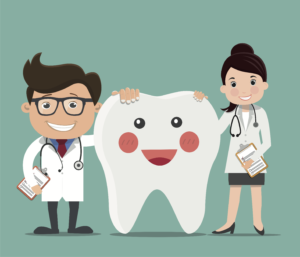 Did you know that a healthy mouth and good oral hygiene can actually reduce your likelihood of other serious diseases? Your mouth is more than just a gateway to enjoying delicious food. Your mouth is an indicator of your overall health. Let’s chew on the facts about dental health and what it can mean for the rest of your body.
Did you know that a healthy mouth and good oral hygiene can actually reduce your likelihood of other serious diseases? Your mouth is more than just a gateway to enjoying delicious food. Your mouth is an indicator of your overall health. Let’s chew on the facts about dental health and what it can mean for the rest of your body.
Gum Disease = Warning Sign
Decayed teeth and gum disease are more than just unattractive–they are a report card on how the rest of your body is doing. Inflammation of your gums can first show up as bad breath. From there, this warning sign can point to more serious cardiovascular problems like blocked blood vessels and even elevated stroke risk. Think your diabetes is under control? Think again if you have the warning sign of gum disease. Check with your doctor if you feel like you just can’t get your swollen and bleeding gums to heal. Uncontrolled diabetes is linked directly to the inability to fight infections like those gum issues. Finally, the warning sign of gum disease has also been tied to higher risk for arthritis and even cognitive issues like slower verbal recall and slower ability to perform subtraction problems.
Oral Bacteria = Major Health Risk
Bacteria buildup in your mouth leads your body towards major health issues. Endocarditis is an infection of the inner lining of your heart chambers and can be traced back to oral bacteria that is left unchecked and enters the bloodstream. These same bacteria, left unchecked, can start major heart issues as coronary disease, clogged arteries, and stroke. Pneumonia has been caused by bacteria from your mouth being pulled into your lungs. And premature birth and low birth weight can be the result of periodontitis in the birth mother.
Tips to a Healthy Mouth
While the end result of poor oral health can lead to disease, the way to avoid this scary pathway is by practicing these good dental habits.
• Brush your teeth twice a day. If you are unable to brush, chew sugar-free gum or use on-the-go toothbrushes like the Colgate Wisp.
• Make sure you use fluoride toothpaste to strengthen weak spots and exposed roots.
• After brushing, use mouthwash to rinse away any leftover food particles.
• Replace your toothbrush every 3 months. Frayed bristles are not strong enough to remove food from between teeth.
• Schedule regular dental visits for both cleanings and exams.
• Adhere to a healthy diet that is low in sugar.
• Avoid tobacco.
Understanding that good dental health leads to good overall health is key. Conversely, poor dental habits have been shown to lead to everything from minor infections to major diseases. When you take care of your teeth and gums the benefits to your overall health are innumerable. Follow the tips outlined here for good dental health and your body will reap the benefits for years to come.
Want to educate others on the benefits to good dental health? Check out these resources:
World Oral Health Day—March 20
Centers for Disease Control and Prevention
American Dental Association—Printables and Activities for Children

